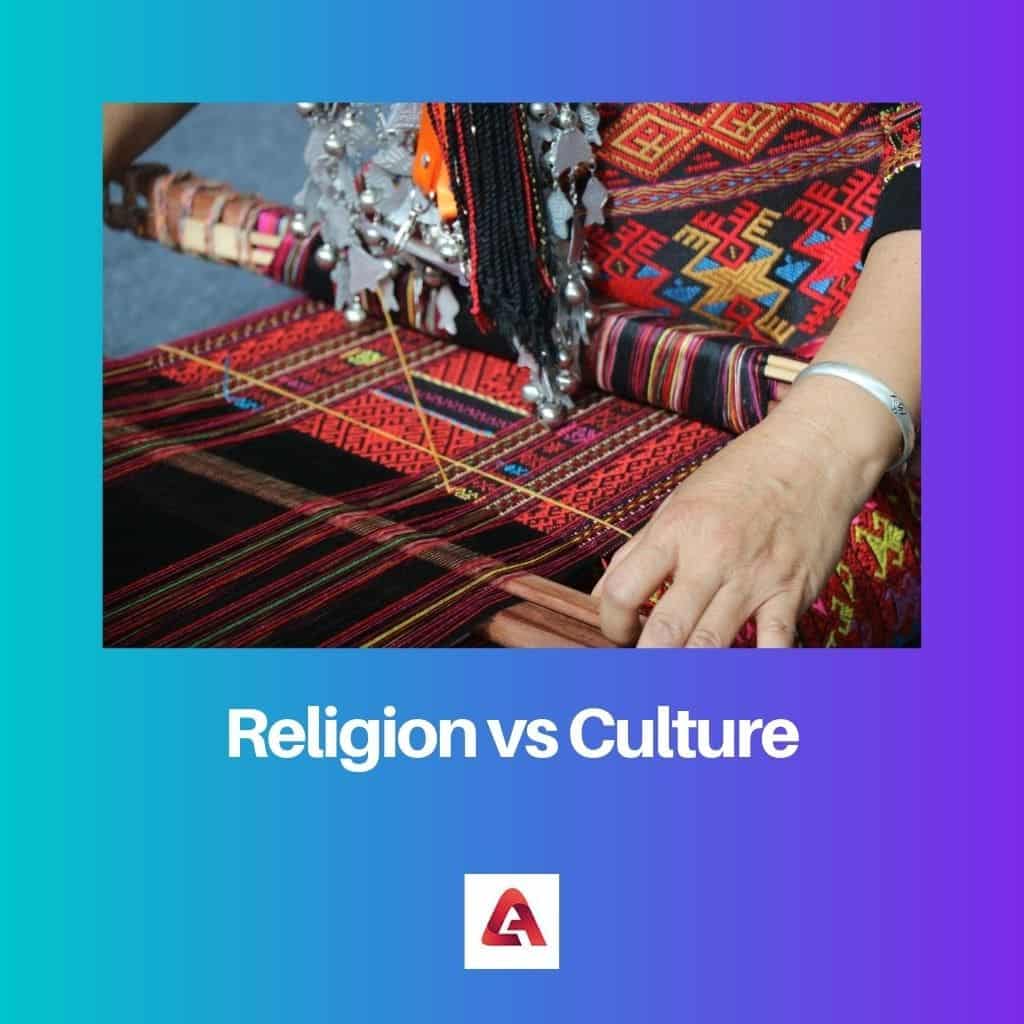There is a lot of confusion between similar terms. As a group of people think there is no difference between religion and culture, they are the same.
Let me tell you that they are not the same, and there are many differences between them.
Key Takeaways
- Religion is a system of beliefs, rituals, and practices that relate to the spiritual, supernatural, or divine, involving the worship of a deity or multiple deities.
- Culture is the collective set of values, beliefs, customs, language, and practices shared by a group or society, encompassing various aspects of life, including religion.
- Both religion and culture are essential aspects of human societies. Still, religion focuses on spirituality and belief systems, while culture is a broader term that includes religion as one of its components.
Religion vs Culture
Religion is defined as a group of individuals who have a common belief, trust, and follow a set of rules to obey a higher spiritual being, who is regarded as the most high. Culture is the way of living or particular beliefs that guide the way people live their lives, and it constantly changes.

The word religion can be defined as believing in God or several gods; it is a system of beliefs in rules and ceremonies used to pray to God or some gods. It is a belief, interest, or activity that is very important to a person or a group of people.
A culture can tell as a word for the way of life for several people. It means how a group of people do things like excellence in the taste of fine arts and humanities, also known as high culture.
It can be told as the person’s outlook, values, morals, attitudes, goals, and customs.
Comparison Table
| Parameter of Comparison | Religion | Culture |
|---|---|---|
| Meaning | Religion can be defined as a group of people who believe in rules and ceremonies to pray almighty. | Culture can define a way of life of the belief. Culture is a word for a person’s outlook, beliefs, attitudes, and customs. |
| Motive | Religion is related to a god or the creator who created the world. | Culture is related to the human being, which is its social heritage. |
| Existence | The existence of the religion is written in the holy scripture, which has come from God. | The existence of culture is not in writing. |
| Changes in time | The fundamental of religion is fixed from the beginning. | Culture can change over time. |
| Evolution | Religion is concerned with the creator of the world, and It is not concerned with the evolution of human beings. | Culture is concerned with the evolution of human beings. |
What is Religion?
Religion is defined as every person’s relationship to the spiritual things regarded as holy and worthy of their highest reverence. It is also referred to as the person’s comfort whenever they have to deal with the truth of life and death, anything in between.
Many religions follow their sacred text as the guidance and authority for spiritual and moral conduct.
It is believed that prayers connected the people to the gods and spirits. Believers and worshipers participated in religious activities such as rituals and meditation in the institution.
It helps people to understand the natural calamities happening around the world. It explains phenomena such as earthquakes and floods.
The person’s ethical values and morals are also based on the religion that they have been practising. In other words, religion is vital to a person’s life.
Different religions have different backstories written in scriptures, representations, and sanctuaries. A person who believes in religion is called a religionist.
Three religions that are followed by most people are Christianity, Islam, and Hinduism. Some people follow different religions at one time.

What is Culture?
A culture does not have a universal definition. It refers to the collective knowledge of the people who live in society.
It refers to every person’s social heritage, including the knowledge they have earned from being together in one particular society. If one fully understands the concept of culture, then one can tell why people in a particular area behave in a certain way that they always do.
Culture can answer why the person in a particular society is dressing up that way or speaks up this way, believes, or practices. When it comes to the material aspect of culture, things will reflect their culture in a society.
Culture is a person’s language, architecture, clothing, greeting, eating habits, or other traditions. The things mentioned above are only the physical part of the culture.
What matters is the cultural view of humanity of how people become aware of themselves. It is knowledge that is not acquired through genetics.
It means a person born in the society builds up the familiarity with the happening around him and develops it into the tradition. It is known as constitutes cultures that include religion as one of its many subsets.

Main Differences Between Religion and Culture
- Religion is considered one subset of culture, while religion is considered a bigger picture than religion.
- Culture is a body of knowledge acquired from people over years of living with them. On the other hand, religion is a belief system towards something that may or may not accept someone’s culture.
- Religion is related to the almighty or creator who created the world. On the other hand, culture concerns a human being, which is social heritage.
- Culture can change with the passing of time, while the basic terms in religion are fixed.
- The existence of religion is written in the holy scripture from God. On the other hand, culture is more while people behave in a particular community.




